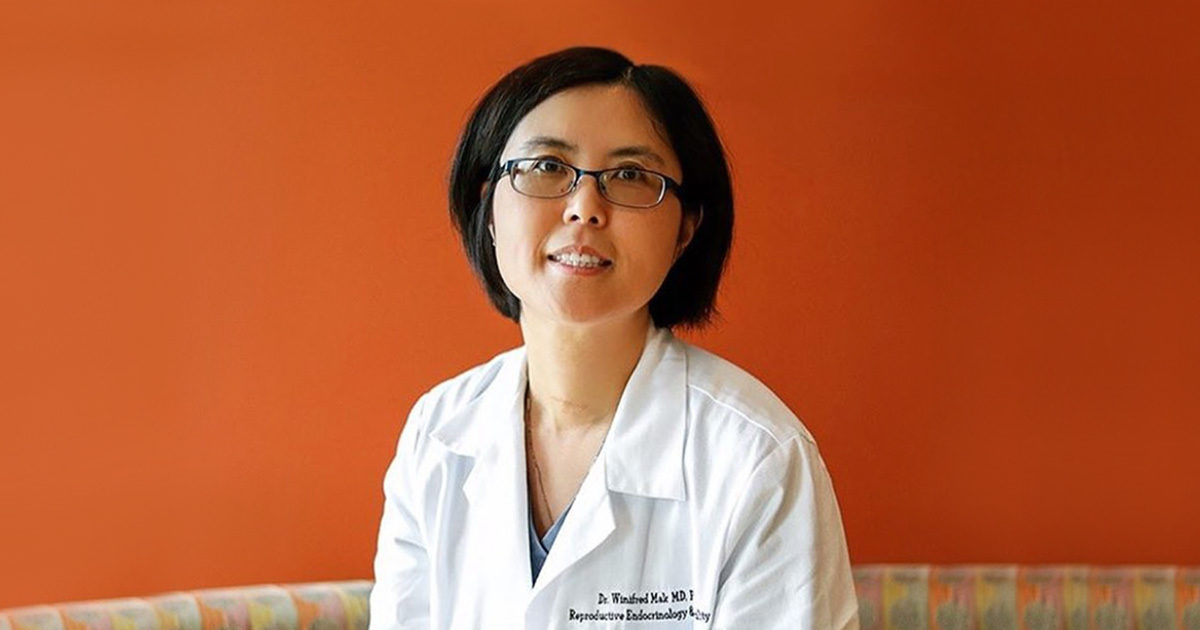Establishing a Novel Way to Investigate Causes of Pregnancy Loss
How placenta stem cell research may help us understand the causes of pregnancy loss and help prevent miscarriages
Reviewed by: Winifred Mak, MD, PhD
Written by: Ashley Lawrence

The first question couples often ask after the loss of a pregnancy is “Why?” For reproductive endocrinologist and infertility specialist Winifred Mak, MD, PhD, who also serves as a part of UT Health Austin’s Reproductive Endocrinology and Infertility care team, this question is not only difficult to hear, but also can be difficult to answer.
1 in 4 couples will experience one miscarriage and 1 in 8 couples will experience two or more miscarriages and suffer from recurrent pregnancy loss. Only 50% of these couples are able to find out the cause of their pregnancy loss. “For recurrent pregnancy loss, and pregnancy loss in general, we haven’t had too many breakthroughs apart from identifying chromosomal abnormalities, issues with the uterus, and antiphospholipid syndrome, an immune system disorder that increases the risk of blood clots,” says Dr. Mak. “Because of this, there’s a huge population of people that just don’t know why they were unable to carry their baby to term. I believe doing more molecular research in the area of pregnancy loss and miscarriages will really help us understand why.”
In 2019, Dr. Mak raised pilot funding through The University of Texas at Austin HornRaiser platform to initiate a research project to find new causes of unexplained pregnancy loss. With the HornRaiser funds she was able to generate the preliminary data she needed to apply for further grant submissions. This year, Dr. Mak was awarded the 2020 Society of Reproductive Endocrinology and Infertility (SREI) Research Grant for her research efforts toward establishing a novel way to investigate causes of pregnancy loss and miscarriages. She will be working with Dr. Jonghwan Kim, an associate professor in the College of Natural Sciences at the University of Texas at Austin, to establish human trophoblast stem cell lines from human miscarriages.
“What we’re going to do is purify what we call trophoblast stem cells,” explains Dr. Mak. “These are specialized cells that can grow and regenerate in the placenta and are vital to the interaction between the fetus and the mother. By growing these stem cells in the laboratory, we can investigate what happened to cause the pregnancy loss, allowing us to find out if it had anything to do with the placenta, and if so, what went wrong. This is a major step toward understanding more of the pathological issues with the placenta in miscarriages.”
While research on human trophoblast stem cells derived from pregnancy terminations was first published in Japan, no one has derived human trophoblast stem cells from miscarriages. To carry out her research, Dr. Mak will have to rely on couples who have experienced a miscarriage to donate a small piece of the placenta from their miscarriage for this research.
“I’ve always had a fascination for the placenta,” says Dr. Mak. “My PhD thesis was on trophoblast stem cells, only I derived them from a mouse. For my research to go from a mouse to a human is what every physician-scientist dream of. I want to actually make a difference by finding causes and not just associations that can ultimately help my patients.”
Dr. Mak is hoping to gather enough preliminary data to apply for a National Institutes of Health (NIH) grant next year that will allow her to perform a more in-depth analysis of miscarriage-specific trophoblast stem cells lines. “I’m interested in how epigenetics, the study of inheritable changes that do not disrupt the DNA sequence, can play a part in pregnancy loss and miscarriages,” says Dr. Mak. “And I have a special interest in imprinted genes, which are a special class of genes that are either expressed from mom or expressed from dad, depending on what gene it is.” This additional funding would allow Dr. Mak to take a more extensive look at imprinted genes in miscarriages.
For more information about UT Health Austin’s Reproductive Endocrinology and Infertility service or to request an appointment, call 1-833-UT-CARES (1-833-882-2737) or visit here.